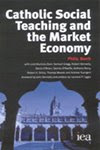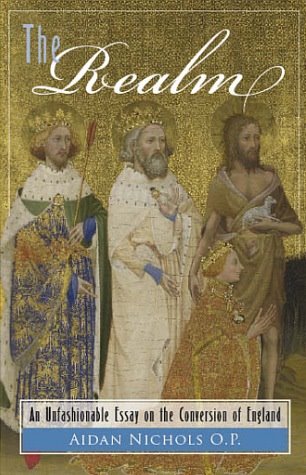The Umpire Strikes Back
 The institution of a new liturgical role is a rare event, but this one is very welcome. Hats off to Cardinal Arinze.
The institution of a new liturgical role is a rare event, but this one is very welcome. Hats off to Cardinal Arinze.
I rather fancy myself in the role. Where do I apply?
"My son, when you come to serve the LORD, stand in justice and fear, prepare yourself for trials. Be sincere of heart and steadfast, incline your ear and receive the word of understanding, undisturbed in time of adversity. Wait on God, with patience, cling to him, forsake him not; thus will you be wise in all your ways." Sirach 2:1-3
 The institution of a new liturgical role is a rare event, but this one is very welcome. Hats off to Cardinal Arinze.
The institution of a new liturgical role is a rare event, but this one is very welcome. Hats off to Cardinal Arinze.
I rather fancy myself in the role. Where do I apply?
Posted by
Athanasius
at
11:55 pm
0
comments
![]()
"The true protagonist of history is the beggar: Christ who begs for man's heart, and man's heart that begs for Christ." - Fr. Luigi Giussani, founder of the Communion & Liberation movement.
Posted by
Athanasius
at
11:59 pm
1 comments
![]()
If you, like me, have been brought up in the English-speaking world, all that you know about indulgences will have been cribbed from anti-Catholic propaganda. This is a great loss. The Church's authority to forgive sins, and forgive the temporal punishment of sin, has always been there, and remains a potent help in our growth towards holiness.
This excellent post by the Historical Christian sums up the practice of partial and plenary indulgences:
"The Church has granted three types of general indulgences, each extensively supported with scripture references in the Handbook, that may be done on a daily basis, several times a day or constantly throughout the day. The first is this:
"A partial indulgence is granted to the Christian faithful who, while performing their duties and enduring the difficulties of life, raise their minds in humble trust to God and make, at least mentally, some pious invocation.
"This is so simple. It can be done everyday, and several times a day. In fact, if we are really striving to live for Christ, we’re already doing part of it: enduring the difficulties of life while trusting in God. We just need to add to it: the intention of receiving an indulgence, being aware of our littleness, our sinfulness and inadequacy before God, and making a “pious invocation,” such as “Lord Jesus, have mercy on me, a sinner,” or “Jesus, I trust in you.” The Handbook has a whole list of invocations; or you can make up your own.
"If we just did this one thing on a regular, daily basis, several times a day as we went through our day, how our lives would change, and how we would grow and deepen in humility, prayer, and trust in God. Which of course is exactly the intention of indulgences, as the Church has spelled it out.
"If a majority of Catholics would do this, imagine how it would transform the life of the Church. As explained, sin affects the whole Body, for the worse. But holiness also affects the Body – for the better. If we receive the benefits of indulgences, we will not only improve our own spiritual health, we will improve the overall health of the whole Body, by aiding in removing the mystical, temporal effects of sin that weigh her down and disfigure her, and so lighten and uplift the whole Body, by our personal growth in holiness.
"Here is the second general indulgence:
"A partial indulgence is granted to the Christian faithful who, prompted by a spirit of faith, devote themselves or their goods in compassionate service to their brothers and sisters in need.
"This can include both corporeal and spiritual works of mercy, helping with both material and spiritual needs, such as giving food or clothing to the poor, or counseling, teaching, or praying for those in need. And if we did this on a regular, daily basis, how it would help us grow in selflessness, and love and concern for others.
"The third general indulgence:
"A partial indulgence is granted to the Christian faithful who, in a spirit of penitence, voluntarily abstain from something which is licit for and pleasing to them.
"If we did this on a daily basis, how we would grow in a spirit of poverty and simplicity, overcome gluttony and strong personal preferences, detach ourselves from sensuality and the world, and learn to focus so much more on God, our true happiness and providence.
"All three of these are so simple, and embody the Christian spirit of trusting in and loving God, and loving and serving others, in a spirit of poverty and detachment from the world. And if we do so with awareness of our own sinfulness, imploring God for His indulgence, how He will indulge us with the increasing grace of Christ! “Ask, and it will be given you. . . . How much more will your Father who is in heaven give good things to those who ask him!” (Matt 7:7, 11b)"
Posted by
Athanasius
at
8:59 pm
0
comments
![]()
Everyone who knows me well, also knows about my unreasoning hatred of liturgical dance.
The "unreasoning" bit is important. If you have to think about whether you hate liturgical dancing, your judgement is already suspect.
I'll leave Stephen Colbert to make the clinching argument...
Posted by
Athanasius
at
4:43 pm
1 comments
![]()
"Once upon a time there was a wicked sprite, indeed he was the most mischievous of all sprites. One day he was in a very good humor, for he had made a mirror with the power of causing all that was good and beautiful when it was reflected therein, to look poor and mean; but that which was good-for-nothing and looked ugly was shown magnified and increased in ugliness...
"That's glorious fun!" said the sprite. If a good thought passed through a man's mind, then a grin was seen in the mirror, and the sprite laughed heartily at his clever discovery. All the little sprites who went to his school--for he kept a sprite school--told each other that a miracle had happened; and that now only, as they thought, it would be possible to see how the world really looked. They ran about with the mirror; and at last there was not a land or a person who was not represented distorted in the mirror. " The Snow Queen, Hans Christian Andersen
Catholic dissent is driven by a sense of grievance. The person who rejects the teaching of the Church does as a demand for justice, for their "due" as they conceive it. This is no surprise. No-one consciously desires the bad. Everyone desires the good, or at least what they conceive of as the good. And justice is one of the highest natural goods.
Both liberal progressives and conservative vigilantes share this vice. Each conceives of themselves as serving the good better than the Church ever could, the first calling the Church harsh, the second lax, but agreeing that the Church fails in justice.
But to call the Church unjust strikes at the heart of what it is to be Catholic, and the Catholic who makes this accusation is always in danger of falling into open apostasy. Consciously or not, this Catholic will claim to reject not the magisterium, but its unjust or imprudent exercise, denying the accusation of apostasy. A certain equilibrium is recovered, but this move comes at a cost.
If the magisterium is not motivated by justice or prudence, all that is left is to claim that it is motivated by power (the possibility of motivation by grace, in both its strictness and generosity, having never been considered). For this reason, much of the language of debate is couched in terms of power: criticism of monarchical popes or bishops, demands for more democratic decision-making, claims to determine what is authentically Catholic and what isn't on personal "authority", along with talk of "taking back the Church", and purging "dead wood".
But an authentic Catholicism can never see the Church as an exercise of power. To see the Church as a political institution is to see it reflected in a false mirror, which will ultimately make "all that was good and beautiful when it was reflected therein, to look poor and mean". And most of us have encountered such types: fighting non-existent enemies, rallying troops on non-existent battlefields.
The magisterium does not belong to the order of power. It belongs to the order of truth and grace, and even the Pope is subject in obedience this order. To quote the current Pope:
"In fact, the First Vatican Council had in no way defined the pope as an absolute monarch. On the contrary, it presented him as the guarantor of obedience to the revealed Word. The pope's authority is bound to the Tradition of faith..." -
The Spirit of the Liturgy, Joseph Ratzinger.
Power is a false mirror. If we begin to see our lives in the Church through that mirror, we will begin in resentment and end in despair.
Jesus thought so little of power that he refused it when offered by the Devil. And he carried that refusal through to the Cross, when he could have exercised His divinity to escape. But He didn't. And I suspect this is a clue to something very important.
We assume the reason Christ did not resort to power on the Cross was because he chose not to. I am sure that's true. But I suspect there might be an even deeper, secret reason: power does not exist.
I repeat it, as absurd as it sounds: power does not exist. Only love, in the end, exists. That is the only mirror that yields the true Image. Dissidents and vigilantes take note.
Posted by
Athanasius
at
3:39 pm
1 comments
![]()
Sacramental Reconciliation is a discipline that I practise around once a month. I would never say that it is something I enjoy, but the Sacrament is a tremendous source of grace and comfort. It can be humiliating to confess the same sins again and again in a long-term struggle, but I prefer to keep up the struggle and suffer the humiliation, than let it slide and be beaten once and for all.
I can therefore understand the popularity of the Third Rite, when it was being used extensively in the Melbourne Archdiocese a few years ago. How easy it was to simply pass over "the unpleasantness" and receive absolution without really naming the sin! When we confess sin we acknowledge our role in the activity of Sin in the world, the disruptive and destructive principle that is at the root of all evil, both natural and moral. This must be accepted for healing to begin, because it it the Truth which sets us free first and foremost.
Sandro Magister, an astute observer of the Vatican and the Italian Church, sees a trend back towards the Sacrament of Reconciliation:
"The indications are modest, but consistent. The latest one comes from Loreto, where twelve thousand young people received the sacrament of forgiveness, with the pope's encouragement. And in the seminaries, there's a return of books for studying "cases of conscience."
Posted by
Athanasius
at
3:08 pm
2
comments
![]()
Posted by
Athanasius
at
12:18 pm
0
comments
![]()
 John Carroll's The Wreck of Western Culture was published in 2004. In it, he traced out the progress of modern thought through art, and the corresponding erosion of the spiritual and moral imagination of the West. The cover illustration is a reproduction of Holbein's The Two Ambassadors, featuring a distorted skull floating ominously in the foreground, hinting at the failure of a purely human culture to address the spectre of mortality.
John Carroll's The Wreck of Western Culture was published in 2004. In it, he traced out the progress of modern thought through art, and the corresponding erosion of the spiritual and moral imagination of the West. The cover illustration is a reproduction of Holbein's The Two Ambassadors, featuring a distorted skull floating ominously in the foreground, hinting at the failure of a purely human culture to address the spectre of mortality.
Posted by
Athanasius
at
2:41 pm
0
comments
![]()
Best comment I've ever seen on liturgical dancing:
"Liturgical dancing does not discriminate between innocents and those deserving of punishment. It is only permissible in self-defense against military combatants, or for the preservation of one's virginity."
HT to someone called Kevin Jones over at Catholic and Enjoying It!
Posted by
Athanasius
at
9:57 pm
0
comments
![]()




